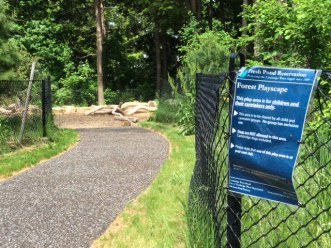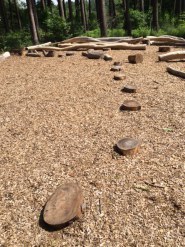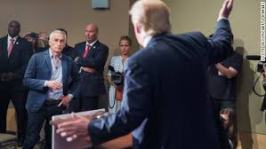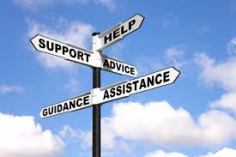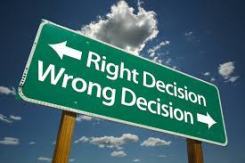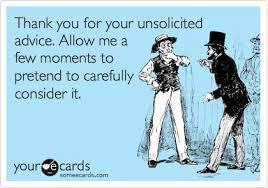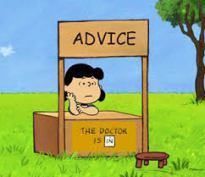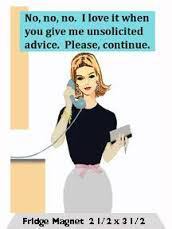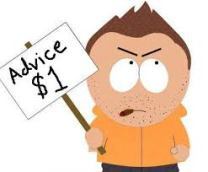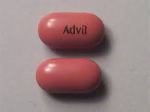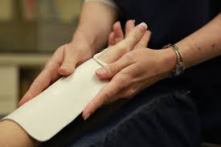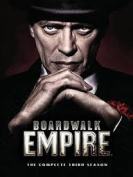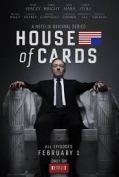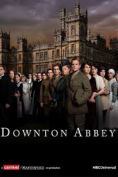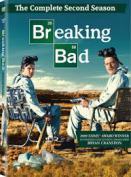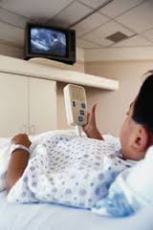Paul E. Fallon's Blog, page 51
June 30, 2016
Sonnets for an Old Century
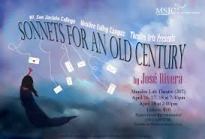 Jose Rivera’s play, Sonnets for an Old Century, is a collection of monologues spoken by strangers gathered in one place at the end of the twentieth century. The audience knows nothing about why they are gathered. Each character is given one chance for voice. I particularly like one attributed to Anne O’Sullivan, though she doesn’t sound the least bit Irish to me.
Jose Rivera’s play, Sonnets for an Old Century, is a collection of monologues spoken by strangers gathered in one place at the end of the twentieth century. The audience knows nothing about why they are gathered. Each character is given one chance for voice. I particularly like one attributed to Anne O’Sullivan, though she doesn’t sound the least bit Irish to me.
ANNE O’SULLIVAN
Um.
Let’s see.
I learned a few things while I was there
Over there…
Wherever there is.
Was.
Is that what I should talk about?
I don’t know if I can talk about no sex.
Okay.
What I learned.
Um. Children?
Children contain all the necessary wisdom
to create a civilization.
Um.
Evil is unexplainable.
So don’t even try.
If you suddenly don’t understand the words
And actions of your family members or best
Friends, think drugs.
Money fouls relationships.
That one’s obvious.
All straight men are attracted to all straight
women all the time.
Rice and beans are better than potatoes.
You will never be able to fully forgive your
Parents.
Dreams are the earth’s telepathy.
Eat as much as you can, a famine is coming.
Baby boomers have completely run out of
Great Ideas.
Strong moonlight is healing.
Let people know when you’re in love with
Them. Lies make your lips smaller.
Pay bills a day late.
Strangers are opportunities for mischief –
Take advantage.
Paint a classroom.
Wash all your dishes by hand and
Contemplate the value of water.
Sins are man-made.
Never trivialize the Supreme Being.
Good prayer is biofeedback.
You can’t love a child too much.
Don’t mess with people who believe in you.
Anger is contagious,
So be careful who you sleep with.
Rice and beans are better than pasta.
Grow one edible fruit or vegetable to
Supplement your income.
Baseball is a game not a metaphor.
Life is neither a dream nor a cabaret.
You don’t have to choose between passion
And security.
There are many parallel Americas and the
rich have the better one.
Listen to your jealousy.
I was shot in the head and I think, to satisfy
The Second Amendment, all Americans should
own one eighteenth-century musket and
that’s it.
Religion and spirituality are two completely
different things in America.


June 27, 2016
The Sweatshirt
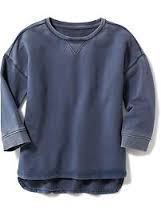 Your daughter comes over for dinner one night, fresh from a run. It’s cool on the deck so you lend her a sweatshirt, something old. You don’t remember when or how you came to have it. When she leaves, she hangs it from the back of a kitchen chair. You toss it in the laundry.
Your daughter comes over for dinner one night, fresh from a run. It’s cool on the deck so you lend her a sweatshirt, something old. You don’t remember when or how you came to have it. When she leaves, she hangs it from the back of a kitchen chair. You toss it in the laundry.
A few days later, folding clothes fresh from the dryer, you pick the sweatshirt out of the pile. Some trace of your daughter billows from the fleece. The garment floods you with memory and meaning. It will never be the same.


June 23, 2016
Institutionalized Adventure
 Twenty years ago, when my children were young, a narrow path wound around the point in Kingsley Park, the peninsula that juts into Fresh Pond, the City of Cambridge’s reservoir. Walking paths, woods, and meadows surround the pond, three square miles of natural relief from the surrounding city. Besides surrounding our water source, Fresh Pond Reservation offers green space and recreation.
Twenty years ago, when my children were young, a narrow path wound around the point in Kingsley Park, the peninsula that juts into Fresh Pond, the City of Cambridge’s reservoir. Walking paths, woods, and meadows surround the pond, three square miles of natural relief from the surrounding city. Besides surrounding our water source, Fresh Pond Reservation offers green space and recreation.
To a five-year-old, the trees on Kingsley Point are a dense forest. When we tramped through the wild on fine spring afternoons, my children would shuffle off the path through last autumn’s leaves, crackling branches that had fallen through the winter. One day, in a clearing beneath the pines, we came upon sticks and limbs propped upright against each other: a teepee of bones, a massive skeleton. We ran around and through the construction; we added sticks to the structure. Each time we went to the park, we found the assembly changed, and altered it ourselves.
My children have grown, graduated high school and college. They both have ‘real’ jobs.
I recently suffered an accident; long walks are my prescribed therapy. I circle Fresh Pond daily. Over the last decade the City of Cambridge has landscaped the reservation. Paths are paved; some are lined with granite curbs. Trees have been thinned, underbrush removed. Unusual specimen plants have been introduced, fiddleheads and lady slippers. It’s less like the unruly forest it used to be, more like a fairyland.
A sign near the promontory of Kingsley Point identifies a nature play area where the ad hoc array of sticks used to stand: a circle of woodchips and an assortment of smooth logs with different contours and lengths. The sign reserves the area for children only. I guess the idea is they can move these pieces around to create sculptures. The playground designers have offered clues: some stumps are cut to look like chairs, others stools. Two long logs lie parallel on the ground with short cords in between, a horizontal ladder. In the middle, an elegant skeleton rises from the ground, resonant of the one my children contributed to twenty years ago, but cleaner, and better proportioned.
Having discovered this new addition, I keep an eye on it during my walks. I don’t mess with it; the sign makes me unwelcome. But few others do either. There’s nothing casual or organic about the wood components, so static within their perfect circle.
Whose idea was it to take an organic place that provided a creative outlet for city children without any taxpayer dollars involved, and turn it into something designed, organized? There are so many things that humans do well. One thing we can’t seem to do at all: leave well enough alone.


June 20, 2016
Mantra for Healing and Strength
 I’ve got a black band hanging from my door for lat pulls, a grey band tied to the knob for forearm rotations, a green band looped around the coffee table for leg lifts, and a red band I loop around my calves for side squats. I’ve got five pound weights for curls and ten pound weights for presses. I’ve got pulleys for arm extensions, taupe putty for finger stretches, and a spring press for grip strength. I’ve got a ball for palm spins, a block for shoulder releases, a strap for hamstring stretches. I hunch on a stool for scapula extensions, press against a wall to lower my quads, and spider back up the same wall to lengthen my shoulder. I move through five different stations in five rooms of my house twice a day to get over what that Porsche did to me. Then I walk or bike or swim for more progress. The mantra that accompanies my manipulations:
I’ve got a black band hanging from my door for lat pulls, a grey band tied to the knob for forearm rotations, a green band looped around the coffee table for leg lifts, and a red band I loop around my calves for side squats. I’ve got five pound weights for curls and ten pound weights for presses. I’ve got pulleys for arm extensions, taupe putty for finger stretches, and a spring press for grip strength. I’ve got a ball for palm spins, a block for shoulder releases, a strap for hamstring stretches. I hunch on a stool for scapula extensions, press against a wall to lower my quads, and spider back up the same wall to lengthen my shoulder. I move through five different stations in five rooms of my house twice a day to get over what that Porsche did to me. Then I walk or bike or swim for more progress. The mantra that accompanies my manipulations:
Movement is good. Resistance is better. Dizzy is progress. Swimming is best.
OT/PT is a progression of small to large. I started with my hand, direct movement and massage on my broken metacarpal and its related joints. A few weeks later we added work on my shoulder, pulling, pressing, and extending that joint. Last came the back, with an entirely different strategy. Stretch and strengthen the muscles that surround the lower back before actually engaging the fractured vertebrae. Lift my legs, clench my gluts, tighten my belly. Do it again, and again, adding bands of resistance.
Twelve weeks after the accident I rolled to a sitting position after my floor exercises and the world spun. Whoa! Where did that amusement ride inducing whirl come from? The dizziness continued, to various degrees, for several weeks, until I realized that dizziness signifies reclaimed strength and I embraced disorientation.
 I don’t like to swim; I feel trapped in water. But nothing supports a wounded body without pressure, or strengthens muscles without stress, or soothes our entire being so effectively. Only after I began to swim regularly, eventually one mile four times per week, did I believe what the therapists have said all along: I will regain all of my strength; all of my ability.
I don’t like to swim; I feel trapped in water. But nothing supports a wounded body without pressure, or strengthens muscles without stress, or soothes our entire being so effectively. Only after I began to swim regularly, eventually one mile four times per week, did I believe what the therapists have said all along: I will regain all of my strength; all of my ability.


June 16, 2016
Chewing Up Our Freedoms by Biting the Hand that Feeds Him
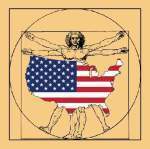 For the past six months, Donald Trump has been the top political story in virtually every newscast. Infatuated by his provocative style, and the ratings it accrued, the media lost all sense of balance. The guy was fun. He animated the circus of American Politics. Exhaustive journalistic attention lent legitimacy to his antics. Now, Donald Trump is the presumptive Republican nominee.
For the past six months, Donald Trump has been the top political story in virtually every newscast. Infatuated by his provocative style, and the ratings it accrued, the media lost all sense of balance. The guy was fun. He animated the circus of American Politics. Exhaustive journalistic attention lent legitimacy to his antics. Now, Donald Trump is the presumptive Republican nominee.
Data supports our collective experience that Trump dominated the media. He ‘bought’ less coverage than any significant candidate; less than half that of Clinton or Sanders; only a fraction of what Cruz, Rubio, or Bush spent. Yet his ’earned’ (i.e. free) coverage is more than twice any other candidate.
The humor of his flaming orange hair and inflammatory tongue is wearing thin. Capitalizing on the largest mass murderer in our nation to stoke immigration fears and denouncing a ‘Mexican’ judge presiding over a lawsuit against Trump University is both incendiary and self-serving. Judge Gonzalo Curiel is a U.S citizen, born here. So was Omar Marteen.
Trump’s response to journalists who question too close is to shut them out. He recently took away the news credentials of The Washington Post reporters, adding to a growing list of banned news organizations that range from Huffington Post, to BuzzFeed, to the Des Moines Register.
The cynic in me finds humor in this spectacle. The media made Donald Trump and now they’re getting their just dessert. Are we surprised to learn that if you are not Donald Trump’s blind friend, you are his sworn enemy? This is not a man given to nuanced perspective.
However, my cynicism evaporates in the face of real threats to the foundation of our great nation. And I have come to believe that Donald Trump threatens our fundamental freedoms – including freedom of the press.
The Fourth Estate abdicated their responsibility to fair and objective reporting during the Presidential primary campaigns. They allowed splash to trump substance. Shame on them for enabling Donald Trump’s politics of division and fear because he made such good copy.
The only appropriate response to Donald Trump’s ban on The Washington Post and other news outlets at his events is for all news organizations to stop covering them. Substitute the portion of the newscast typically filled with his rhetoric with a statement. “We will not cover Donald Trump’s campaign until he invites all legitimate news organizations who wish to attend.”
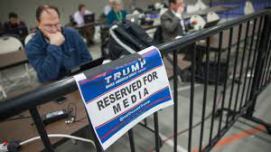 This won’t happen. There is no more solidarity among news organizations than there is among other groups in our society. But Trump evictions will affect the reporters who remain. They will grow cautious. If they don’t tote the Trump line, they’ll be next. Coverage of Donald Trump will be publicity rather than journalism, which is pretty much what’s its been throughout the campaign.
This won’t happen. There is no more solidarity among news organizations than there is among other groups in our society. But Trump evictions will affect the reporters who remain. They will grow cautious. If they don’t tote the Trump line, they’ll be next. Coverage of Donald Trump will be publicity rather than journalism, which is pretty much what’s its been throughout the campaign.
I am much more disappointed in our media than I am with Donald Trump. He’s just being Donald Trump. It’s the media who’s facilitated turning the acerbic host of The Apprentice into a presidential contender.
Still, it’s time for me, for all of us, to speak up on behalf of the media, the immigrants, the judges, the solid citizens whom Donald Trump denigrates. We must safeguard the freedoms our forefathers created and our fathers defended. We may not like the alternatives offered for president in 2016, but no other candidate shows such callous disregard for our basic freedoms. Speak out against Donald Trump.
First they came for the Socialists, and I did not speak out—
Because I was not a Socialist.
Then they came for the Trade Unionists, and I did not speak out—
Because I was not a Trade Unionist.
Then they came for the Jews, and I did not speak out—
Because I was not a Jew.
Then they came for me—and there was no one left to speak for me.
Martin Neimoller


June 13, 2016
Unsolicited Advice Redux
 No sooner do I write an essay about unsolicited advice than I catch myself doling it out. Every rule has its exception.
No sooner do I write an essay about unsolicited advice than I catch myself doling it out. Every rule has its exception.
I was at a barbeque with friends when one half of a couple explained in great detail their options for moving in together and eventual retirement. They are a wonderful pair; the news was welcome and sweet. Except I noticed the other half, my direct friend, didn’t contribute a word to the conversation. Were these ambitious plans mutual, or one man’s fantasy?
I woke the next morning thinking about my fraternity brother John, who met and married a woman on the rebound. We didn’t like Debra. Several of us considered talking to John about his hasty commitment, but none of us felt we should intervene, so we didn’t. They married. She made his life, and his death, miserable. I’ll never know if a word from me would have made a difference. I only know I never tried, and John’s last days were fraught with physical and mental abuse that exceeded our worst fears.
With that sticky memory in mind, I composed a note to my friend whose partner was so enthusiastic, perhaps too much so, about life together. Like any guy-guy communication regarding matters of the heart, my words fell awkward on the screen; simultaneously too intimate and too cavalier. I apologized in advance for even broaching the subject; I expressed worry that my friend’s and his partner’s future vision might not be in accord. I iterated that, as my personal friend, I was most concerned about his happiness. It was a sloppy mash-up, but I hit ‘Send’ anyway.
The next day my friend responded, casually unaware that he and his partner even appeared discordant. He was tired and distracted the night of the party but, yes, they are both looking forward to making a more permanent life together.
I’m happy for them. I also feel a little silly. Maybe I should mind my own business. I rationalize that, as unsolicited advice goes, mine was pretty mild. More like unsolicited concern. I rest better knowing my friend is truly happy. And hope he rests better knowing I care enough to worry about him.


June 9, 2016
Unsolicited Advice
 I know what my unemployed friend should do to find a job. I know how my niece should deal with her awkward boss. I know how my writing buddy should find a publisher. I know how my neighbor should trim his hedges. But I withhold my sure knowledge for one simple reason: they haven’t asked my opinion.
I know what my unemployed friend should do to find a job. I know how my niece should deal with her awkward boss. I know how my writing buddy should find a publisher. I know how my neighbor should trim his hedges. But I withhold my sure knowledge for one simple reason: they haven’t asked my opinion.
It is so easy to see how other people ought to live their lives, and so difficult to run our own. The temptation to loose our tongue when we know best is strong. But I am close-mouthed when it comes to advice. You don’t get it unless you ask.
Unfortunately, from my point of view, others don’t heed my caution. Unsolicited advice flies at me like pollen in spring. This stems, I imagine, from a general understanding that I am inept, an understanding that dates from my youth. How else does a boy earn the nicknames ‘Shorty’ and ‘Two-left-feet’? As a 5’-10” fellow who’s a good dancer, my nicknames are historical remnants rather than demeaning realities. As a self-made man who’s transcended his beginnings, I am anything but inept. But I am definitely quirky, and for many, that plays out the same. There must be something constitutionally wrong with a guy who washes dishes by hand rather than fill the dishwasher, prefers the music in his head to iTunes, and actually looks forward to eating the exact same breakfast every day. If I were ten years old in 2016 I’d probably be labeled ‘on the spectrum.’ Luckily I was born before everyone had to wear a diagnosis.
I have endured two peak periods of unsolicited advice in my life. The first was in the 1990’s, when I was a stay-at-home dad with a toddler. Fathers as parents were rare then, and mothers as advice givers ubiquitous. I dreaded going to the playground where I suffered constant commentary that my daughter was hungry, tired, or wet and the dire warnings that I didn’t keep a close enough eye on her. My parenting strategy is simple and consistent. “Give a child a long rope but don’t let them hang themselves.” Somehow, Abby managed to survive me as a father (without ever visiting the emergency room) and is a pretty adventurous gal today.
The second peak period is now. There’s nothing quite like an accident or a disease to load the wisdom of the world upon you. Caution is everywhere. “Take it slow.” “Don’t push.” “It’s too soon to take off your brace.” Everyone has an opinion about drugs. “Take pain meds before you feel the pain.” “Take Aleve instead of Tylenol.” “Take Tylenol instead of Aleve.” Advice need not be consistent. I marvel at how these people manage to climb inside my body and figure out how I feel. How else could they be so confident that my own perceptions are wrong?
All of this unsolicited advice peaked when I began to disclose a target date to return to my cycling trip: July 9 pending continued rehab progress. Weather, route, wanting to ride over a continuous period, and not wanting to ride through the winter holidays, favor putting it off until next spring if I am not ready by July.
This target date brings universal, often comical, grimaces of horror and knee-jerk advice to delay. Really folks? Am I such a reckless guy that I don’t deserve the motivation of working toward a target? Why anyone beyond my doctors and physical therapists has an opinion about my ability to ride my bicycle baffles me at best, is presumptive at worst.
But that’s just me being quirky, and the world continuing to believe I must be inept.


June 7, 2016
Miniseries Mania
Physical therapy is additive. Each immobilized joint and wounded tendon requires its own manipulations to come back to life. At peak, I spent six hours a day (four sessions of 1-1/2 hours each) with heating pads, putty, pulleys, gravity and ice; mending my broken hand, shoulder, and back. I marched in place, massaged my scapula, clenched my fist, cranked my pinkie, and tilted my pelvis. Thank goodness for yogic Ujjayi breath to pace my exertions. Thank goodness for miniseries’ to divert the tedium.
The last time I watched TV with any regularity was in the 1980s. My wife liked ensemble series; St. Elsewhere and LA Law provided our escape from graduate school grind. Since human nature rejects anything a spouse enjoys once that spouse becomes ex, I haven’t watched a series in over 25 years. Ah, how time and circumstance change things. Sitting around, massaging my extensor tendon, I have fallen under the thrall of the miniseries – soap operas addictive as potato chips clawing at the underbelly of art.
Krys Holmes once gave me a useful definition: “Entertainment takes you out of the world. Art pulls you deeper it.” I think of her words every time the logo ‘HBO Entertainment’ pops on my screen between episodes of Boardwalk Empire. It confirms I am watching entertainment and not art. So why am I as captivated by the gangsters of 1920s Atlantic City as any character from Dickens, Hardy, or Shakespeare? When Martin Scorsese and Mark Wahlberg we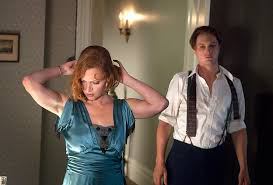 ave the Oedipal tragedy into the second season, are they simply plot robbers, or are they aspiring to something higher?
ave the Oedipal tragedy into the second season, are they simply plot robbers, or are they aspiring to something higher?
There is an art to the miniseries form: multiple plotlines, complex characters, moral ambiguity. For me, Breaking Bad and The Network don’t have enough plotlines to maintain interest over multiple seasons, while Downton Abbey just keeps ladling them on. Some machinations resolve within an episode, others stretch out for years. Frank Underwood (Kevin Spacey in House of Cards) turns a good deed just often enough to keep us guessing about his intentions, but Thomas, Downton Abby’s footman turned military coward, is so consistently reprehensible his scenes fall flat – we cannot care about someone who’s never nice. Characters who endure moral transformation are most compelling. Bryan Cranston (Walter Whyte in Breaking Bad) leaves me cold; I don’t believe that the damage he creates justifies his intentions. But Kelly McDonald (M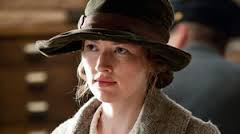 rs. Thompson in Boardwalk Empire) mesmerizes me; her evolution from abused wife to pious Catholic to stock market shark is as fascinating as it is unrealistic.
rs. Thompson in Boardwalk Empire) mesmerizes me; her evolution from abused wife to pious Catholic to stock market shark is as fascinating as it is unrealistic.
Of course, in the realm of the miniseries, realism is relative. The Wire attempts real-world veracity. Breaking Bad is every-day America with an uncanny understanding of the Periodic Table. They are both too real for me. I prefer glamour in my escape: period costumes, lavish sets, and amusing accents.
Which brings me back to the ‘HBO Entertainment’ logo and Krys Holmes’ definition of art. Popular miniseries are one of the few morsels of shared culture we have left. And they are certainly entertaining. But at their best, I think they rise to the level of art. The crimes Walter Whyte commits to provide for his family invite moral discussion among his viewers. The Network’s inability to broadcast news sanitized of bias reflects a world of competing truths. Frank Underwood’s underhandedness doesn’t just portray corrupt government; it fuels attitudes that all government is corrupt. No one can watch House of Cards without coming away mistrustful of the hooligans inside the Beltway.
The best miniseries are entertainments that inform our view of reality. They have moved beyond escapism. They’ve become art. Or maybe that’s just what I want to think, watching them for hours very day.


May 31, 2016
Recuperation
How quickly one routine evaporates and another congeals. Out on the road I thrive on ride/talk/write. The balance between physical exertion and mental analysis, sociability and isolation is near perfect. Then – bang – bike meets Porsche. Within two weeks I’m home, anxious about how I will navigate the weeks or months (no one ventures an estimate) until I reach a functional plateau.
Inactivity is Paul Fallon’s nemesis. The resolution to everything – anxiety, healing, fitness – hinges on embracing a new routine. Within days I find a rhythm; not as satisfying as cycling cross country, but not so bad either.
Fortunately I have nothing to do but be an exemplary patient. The doctors tell me to walk, so I do. Five miles a day, sometimes more. I put out a call to friends to join me around Fresh Pond morning and afternoon; I have company most days. After a walk, I’m exhausted.
Standing and walking are the most comfortable positions for my corseted back, but I get fatigued and need to sit, vertical and cushioned. The kitchen bar stools pinch my hips, my desk chair is excruciating, the sofa is out of the question. I take a pillow, march through the house, and test every c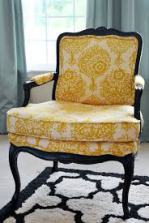 hair. I only own a few sticks of furniture, but my housemate Paul is an antique lover. Wingback, club, slipper, I test each of his valuable specimens for comfort. His quartet of gold brocade Bergere armchairs provides the perfect blend of cushion and support. We set one at the table where I eat, another at my computer, a third in front of the TV. I spend my day moving between them like a member of Louis’ XVI’s court. C’est magnifique!
hair. I only own a few sticks of furniture, but my housemate Paul is an antique lover. Wingback, club, slipper, I test each of his valuable specimens for comfort. His quartet of gold brocade Bergere armchairs provides the perfect blend of cushion and support. We set one at the table where I eat, another at my computer, a third in front of the TV. I spend my day moving between them like a member of Louis’ XVI’s court. C’est magnifique!
After dark I climb the stairs, swallow two Advil, slip off my brace, lay board flat on my back and fall asleep. Ten hours, maybe twelve.
Progress is not linear. Some mornings my elbow buckles trying to sit up to brace position. Sometimes my head woozes when I stand, despite planting my good hand on the armrest, taking a conscious inhale, and exhaling to rise. I can’t discern daily improvement, but after a week my walks are longer and dizziness abates.
I give my HMO high marks for timing. Whenever one aspect of my recuperation gets under control, they up the ante. Three weeks after hospital release, the PA removes the pins in my hand and sends me directly to occupational therapy. Kerry, a motorcycle chick from Arkansas, demonstrates a series of exercises to get my finger joints, grip, and wrist in motion. She shapes a splint to my swollen, deformed hand. I am to repeat the exercises four times a day. Being the good student that I am, my soul stirs with purpose at the prospect of three hours a day of hand therapy.
On my walk home – I walk everywhere these days – I stop by the library and check out season compendiums of all the miniseries I’ve heard about and never seen. Breaking Bad, Boardwalk Empire, House of Cards, Network, Downtown Abbey, The Wire. Each 45-minute episode aligns perfectly with the time I need to manipulate my hand. I watch violence layered upon violence while untangling the damage inflicted on my own body.
I know I’m getting better when envy creeps into my countenance: cyclists banking the curve along my street. I’m weeks or months away from getting on one of those. Although I suffer no pain in stillness, an uneven sidewalk crack can jolt my spine, a sudden turn can pop my shoulder, the road rashed skin on my left hand is still too tender to touch, and my pinkie joint moves like a barnacle encrusted rudder. I don’t have nightmares about my impact with the Alabama pavement, but I wince at every car crash the miniseries dish up. When and if I can return to my bicycle, will I even want to?


May 26, 2016
Eight Random Observations of Eight Days in a Hospital
I spent eight days at Sacred Heart Hospital in Pensacola, Florida after a Porsche took out my bicycle along a bucolic byway in Alabama. I received uniformly cheerful, prompt, and competent care, which is not necessarily the same as efficient or effective care.
During my 30-plus year architectural career I designed healthcare facilities. In order to understand the patient experience I observed operations, spent overnights in emergency departments, simulated patients navigating wheelchairs around bathrooms. But none of that prepared me for the actual experience of being an inpatient.
American healthcare is not a coherent system, more like a collection of protocols inequitably applied. There are ample studies and reports that articulate how it’s too expensive, too skewed to disease over wellness, too poorly coordinated, and too concerned with profit. If you want a big picture analysis, go read them. Here, I simply offer eight anecdotes from my eight inpatient days.
One at a time clinical care. Over fifty different people; physicians, nurses, nutritionists, therapists, saw me during my stay. Only once did two clinicians visit me at the same time. I became very good at spinning my medical tale, as I never got the impression any of them read each other’s notes.
Pain is bad. Patients are not supposed to feel anything. Pain medications are offered early and often. A nurse prepared a morphine shot within an hour of my accident. I stopped her. Due to shock, it took over two hours for me to feel the pain in my shoulder. If I’d been on morphine, would I have felt the pain that directed our attention to that area? All staff delivers the same message: take pain meds in advance of feeling pain because “once the pain starts it’s hard to catch up with it.” Really? Or is it just easier to deal with patients who are numb. I want to feel my pain, so I know where I’m hurt.
Watch, don’t read. I had 72 channels at my fingertips but no books or magazines. By day five I was able to walk about. No mags even in the gift shop, only The Bible. Ever mindful of the seventh commandment, I ‘borrowed’ magazines from the surgical waiting room and returned them before I left.
There is a pill for everything. I broke my L2 vertebrae, a shock that shut down my digestive track. Three days after admission I received general anesthesia for hand surgery, so my intestines stayed clogged. Nurses gave me three successively more aggressive drugs to loosen my bowels. On day five, I asked the dietician for prunes or bran. Not available. I guess you can’t itemize a bill for prunes or bran.
Wrapped in plastic. Every pill is administered in a plastic cup, every utensil comes in plastic wrapping. Every bit of plastic is single-use and tossed. There was no recycling bin in my room.
What are you here for? On my third day, the social worker stopped by. She was a circuitous talker. After 10 minutes I asked, “What are you here for?” My question rattled her. She muttered something about a Case Manager to oversee my discharge, then retreated. Odd, since I was scheduled for surgery the next day and not about to be discharged anytime soon.
Medications are added, never reduced. The clinicians were concerned about me developing blood clots in my legs; an unlikely condition for someone who’d been peddling fifty miles a day. They put on compression stockings, which felt great, and gave me anti-clotting medication. Even after I was walking a mile a day, more steps than the average American, anti-clotting medication was still prescribed. Until I refused it.
Discharge is a black hole. One by one, clinical services signed off on me. I stopped seeing the neurosurgeon, the orthopedist, the physical therapist. But I didn’t get transferred to rehab, either. The weekend came and went. I stayed. By Monday I was walking all over campus; I didn’t need to be in the hospital any longer. I waited for the promised Case Manager. Instead, a flippant intern arrived late afternoon and announced I was discharged to my own reconnaissance. She was flummoxed when I expressed concern. “People are happy to be discharged.” Not when they still need assistance getting in their brace and it’s too late to catch a flight home 1,000 miles away. I had to stay another night. Just because.





